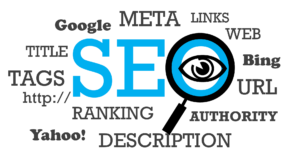
An Open Letter to the DIY “I know what I’m doing” Crew
If you’re of the mind that you can do everything and anything yourself, then you must LOVE the internet – and everything it has to offer. With everything from written guides to visual charts and Youtube videos available for every age group, industry, and user type, there really has never been a better time to branch out on your own, learn online, and do it all yourself.
And if you come across the odd article which shares content of little to no value, or which shares tips which will damage your reputation rather than bolster it – who cares! Because you know exactly what you’re doing without any support, right?
What is SEO – and do I REALLY need it?
SEO is short for Search Engine Optimisation – which is the tool responsible for helping consumers and potential customers find your website and your content. However, in the eyes of more business owners than you would expect, SEO is purely a hoop that Google makes them jump through… and they’re not having it!
Enter the anti-SEO crew, intent on going it alone and using the power of their own content to drive conversion and attract customers. These are the people who DON’T need help increasing their revenues, and who aren’t that fussed about increasing profits. They’re the business owners who operate in such a clear and obvious niche, that they KNOW the right audience will find them, with or without SEO.
At the end of the day, SEO is a stepping-stone to greater business success. So, what do you do when your business doesn’t need help in succeeding?
Why you DON’T need SEO
If you’re a big fan of the internet and all of those DIY resources we mentioned earlier, you will likely already be aware of the number of businesses and SEO experts out there, keen to help bolster the value and reach of your content and online presence. These are people who boast both experience and knowledge, who understand the algorithms and who know how to play the system in order to ensure that their clients get the best results month after month.
Most of all, they are the businesses and experts whose job it is to boost the presence of their clients among their own specific industry and marketplace – using SEO and the various tools that SEO presents in getting content noticed and drawing the right people in to read it.
So, what about those who don’t need SEO? Are they right in believing that SEO is just another corporate demand made by the powers behind Google? Or are they missing a trick?
See for yourself….
- SEO keeps your target audience coming back
For many, gaining and retaining the attention of a target audience is the number one goal of any advertising campaign and marketing strategy. But if you’re truly confident in your ability to keep people entertained and interested, simply using great content and fun visuals, great! Never mind if they can’t find it once it’s been posted… the right people will get there eventually, right?
- SEO helps you to reach new customers
Do you really need new customers? SEO is one of the most useful, effective, and efficient tools in expanding your audience footprint and getting your message out on a wider scale – so if you’re perfectly content with your business as it is and DON’T want to continue to grow and evolve, SEO is really more of an obstacle than a valuable asset.
- SEO increases revenues
Increased revenues mean more profits and more growth, more recruiting and an increase in your business operations. For many, these are the signs of a successful company, but for others they are more stress than they’re worth. Which camp are you in?
- SEO helps you stand out against the competition
If you don’t want to stand out and are more than happy simply co-existing with your industry competitors, then avoiding SEO is the very best move you can make. Standing out from your competition means showcasing what your business has to offer, and really making a mark on the target audience through your vision and company values – ensuring that the right people find your company through search engines and SEO-bolstered content. Is this something you want to communicate, or are you happy just floating along in the industry current?
- SEO builds brand awareness, even outside your target audience
If you don’t want to increase revenues and build your business, then expanding your target audience and communicating with those outside of your core target market is a waste of time – time that could, perhaps, be spend indulging in a hobby or personal interest. For those businesses that are totally confident in their target audience and existing communications, to the point that expanding outside of that core audience to build wider brand awareness is detrimental to business success, then SEO is a problem to be avoided.
The simple fact is that SEO is only suitable for those businesses that want to succeed in a way that bolsters company growth, increases revenues, and continues to reach out to both the target audience and potential new customers – consistently and effectively. For those businesses and organisations who are happy to stay where they are, swimming among the competition rather than pulling ahead, SEO is an asset that they don’t need.
But before you decide that the second option is for you or dismiss SEO as just another hoop designed by the powers at Google, ask yourself this. Can I really continue to meet the constantly changing demands of a modern, technologically-able audience, on my own? Or might a little SEO support serve my business well in the long run?
